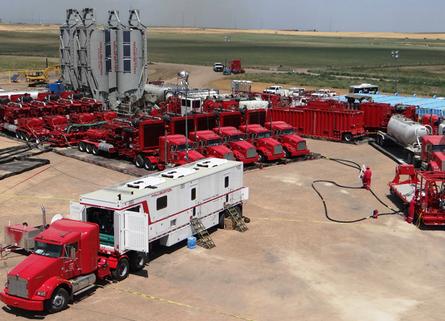Top U.S. Oilfield Firm Halliburton Hit by Cyberattack, Source Says
(Reuters) — U.S. oilfield services firm Halliburton on Wednesday was hit by a cyberattack, according to a person familiar with the matter.
Halliburton said it was aware of an issue affecting certain systems at the company and was working to determine the cause and impact of the problem. The company was also working with "leading external experts" to fix the issue, a spokesperson said in an emailed statement.
REGISTER NOW: Edge Architecture Under Siege: Essential Cybersecurity Strategies for Oil and Gas Leaders
The attack appeared to impact business operations at the company's north Houston campus, as well as some global connectivity networks, the person said, who declined to be identified because they were not authorized to speak on the record.
The company has asked some staff not to connect to internal networks, the person said.
Houston, Texas-based Halliburton is one of the largest oilfield services firms in the world, providing drilling services and equipment to major energy producers around the globe. It had nearly 48,000 employees and operated in more than 70 countries at the end of last year.
Cyberattacks have been a major headache for the energy industry. In 2021, hackers attacked the Colonial Pipeline with ransomware, causing a days-long shutdown to the major fuel supply line.
That breach, which the FBI attributed to a gang called DarkSide, led to a spike in gasoline prices, panic buying and localized fuel shortages.
Several major U.S. companies have suffered ransomware attacks in recent years, including UnitedHealth Group, gambling giants MGM Resorts International, Caesars Entertainment and consumer good maker Clorox.
While its unclear what exactly is happening at Halliburton, ransom software works by encrypting victims' data. Typically, hackers will offer the victim a key in return for cryptocurrency payments that can run into the hundreds of thousands or even millions of dollars.
If the victim resists, hackers sometimes threaten to leak confidential data in a bid to pile on the pressure.
The ransomware group DarkSide, suspected by U.S. authorities of the Colonial Pipeline attack, for example, said it wanted to make money. Colonial Pipeline's CEO said his company paid a $4.4 million ransom as executives were unsure how badly its systems were breached or how long it would take to restore the pipeline.
Related News
Related News

- Kinder Morgan Proposes 290-Mile Gas Pipeline Expansion Spanning Three States
- Three Killed, Two Injured in Accident at LNG Construction Site in Texas
- Tallgrass to Build New Permian-to-Rockies Pipeline, Targets 2028 Startup with 2.4 Bcf Capacity
- TC Energy Approves $900 Million Northwoods Pipeline Expansion for U.S. Midwest
- U.S. Moves to Block Enterprise Products’ Exports to China Over Security Risk
- U.S. Pipeline Expansion to Add 99 Bcf/d, Mostly for LNG Export, Report Finds
- Enbridge Adds Turboexpanders at Pipeline Sites to Power Data Centers in Canada, Pennsylvania
- Great Basin Gas Expansion Draws Strong Shipper Demand in Northern Nevada
- Cheniere Seeks FERC Approval to Expand Sabine Pass LNG Facility
- Heath Consultants Exits Locate Business to Expand Methane Leak Detection Portfolio





Comments